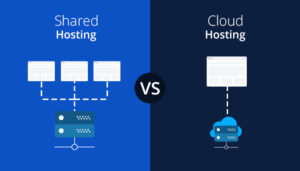There are several things to think about when it comes to hosting. Selecting the right kind of hosting, matching the specifications of your website and navigating through a plethora of options are all essential duties. Choosing the best hosting for your website is, however, the most crucial stage in this process.
One hosting kind that might have piqued your interest is virtual private server (VPS) hosting and for good reason. There are many advantages of VPS hosting to this unique hosting arrangement, particularly for certain kinds of websites. VPS can be the greatest choice if you’ve outgrown shared hosting and are looking for something more adaptable and long-lasting.
In the next section, we will explore the complexities of VPS hosting, set it apart from other types of hosting and then examine the many advantages of VPS hosting offers for your website so you can choose whether it meets your needs.
What Exactly is VPS Hosting?
Before we discussed about advantages of VPS hosting provided, you should know what is VPS hosting first. VPS hosting, which stands for Virtual Private Server, might sound vague at first, but its purpose becomes clearer once you understand its function. VPS hosting is defined by its virtual aspect, which uses virtualization technology to create a virtual server on top of an existing physical server. A single physical server is effectively divided into numerous virtual servers.
Each of these virtual servers operates separately, with its own arsenal of server resources. This means that no RAM, CPU, or storage will be shared with other websites, even if they reside on the same physical server.
In contrast, shared hosting requires you to share a server with conceivably thousands of other websites. The risk of shared hosting is that other websites will negatively affect the performance of your site.
Let us imagine VPS hosting as staying in a high-rise housing complex. Although the main building is shared, every apartment is separate. You may design your space without worrying about how your neighbors’ housing will affect yours. The physical server relates to the building structure in this comparison, and each flat represents a single VPS server.
How Does VPS Hosting Operate?
The virtual server environment in VPS hosting is similar to that of a typical physical server. The physical server is divided into numerous virtual servers using virtualization technologies.
Each partition acts as an independent virtual server, allowing users to set up their operating system and software in precisely the same way as a regular dedicated server does. This partitioning method is similar to the manner in which a personal computer is partitioned to run multiple operating systems simultaneously.
Despite its virtual nature, a VPS server operates in the same way as a physical server. This reduces issues with other websites affecting the operation of your website. Choosing VPS hosting gives you secured server resources, that guarantee you’ll never have to share resources with other users. This is the one of the advantages of VPS hosting.
VPS vs Shared and Dedicated Hosting
Let’s compare them with other hosting options before explore advantages of VPS hosting:
Shared Hosting
Shared hosting includes combining server costs with hundreds of other users. It is user-friendly, but there is a possibility of one site using excessive server resources, perhaps impacting your site. Shared hosting enforces limitations on on-site capacity and traffic volume.
Dedicated Hosting
Dedicated hosting provides access to a complete physical server. While it provides unmatched power, performance, storage, and security, it is expensive and requires a greater level of expertise in technology for server maintenance.
Advantages of VPS Hosting
The following are the most important advantages of VPS hosting:
1. Enhanced Performance
As your website grows and traffic increases, performance can become a concern. One of the key advantages of VPS hosting is its ability to handle large volumes of traffic, ensuring fast loading speeds and minimal downtime. With VPS hosting, you have access to dedicated resources, so your website performs well even as it grows.
2. Improve Storage and Bandwidth
You will have access to extremely large amounts of bandwidth and storage with VPS hosting. This will assist in enhancing reliability (discussed below) as well as performance (discussed above). The quantity of server space you have will astound you if you’re moving from a shared hosting package. Extremely high traffic volumes can also be supported without any problems by the high bandwidth levels.
Media-rich multimedia websites, blogs with hundreds of posts, and much more can be supported by this additional space and bandwidth. Here’s a brief overview of the RAM, CPU, disc space, and bandwidth available at Server Gigabit: Server Gigabit VPS hosting pricing plans
3. Higher Degrees of Reliability
When you’re first starting out on the internet, shared hosting can be quite helpful. But, you might encounter issues concerning uptime because of the large number of websites that are crammed onto a single shared server.
Shared servers have eliminated many of the problems in the past, though. If you’re seeking high uptime and performance, it’s still not the greatest option.
You are the sole website utilizing the server’s resources when you have a VPS. Thus, the only reasons you might experience downtime are if you select a subpar hosting company or use more resources than what your package currently allows.
4. Greater Server Control and Customization
You may customize and control your server to greater depth with most VPS hosting services. Therefore, VPS can be the best option if you need a special operating system or server configuration that isn’t supported by a shared hosting package. Similar to dedicated hosting, you also receive privileged access to the server, meaning you can basically start from scratch and configure it to the exact specifications of your website.
For specific websites that need a certain software or server configuration, this is a need.
Certain kinds of websites—such as e-commerce websites—may profit from VPS hosting from the very beginning. Many eCommerce websites employ software or demand higher-level security measures, which may not work with shared hosting configurations. With Server Gigabit’s VPS hosting, you may customize your hosting configuration to precisely meet the specific needs of your website.
5. Capacity to Increase Your Server Setup
Additionally, VPS hosting is quite scalable. Thus, you can rely on VPS hosting to expand together with you if the volume of traffic to your website is increasing. As opposed to other hosting options, such as shared hosting, where you are forced to switch to a different kind of hosting once your plan’s limitations become exhausted.
Just simply need to click a button to expand your server’s resources while using VPS hosting. It’s also simpler to scale up and down your server resources. As a result, you can increase traffic during promotions or the hectic holiday season, then decrease it when regular traffic levels return.
VPS hosting can be your best option if your website has fluctuating traffic levels or if traffic is always increasing.
6. Less Expensive Than Dedicated Hosting
Many website owners are unable to afford dedicated hosting because it is usually among the priciest hosting options available. However, you may get the same amount of features with VPS hosting without having to make a large price commitment. While the size of the server may not be as enormous, it will still be more than sufficient for a great deal of website owners.
Whatever portion of the server’s resources you’re utilizing at any one time, you pay for the full server when you use dedicated hosting. But with advantages of VPS hosting, you’ll only pay for the resources you’re actually using because you have more control over the server’s resources.
Because of this, it is more affordable than dedicated hosting—even at the initial monthly fee.
7. Get Support From a Skilled Tech Team
Running your site on a VPS server is a little more technical in nature. It’s a step up from shared hosting, which is incredibly easy to manage on your own. If you run into an issue with your server, or your site goes offline for a mysterious reason you’ll want to ensure there’s a quality support team that can help you out.
Most VPS hosting providers will have a technical support team that can assist you. However, some providers also offer advanced technical support just for their VPS customers. No matter your technical proficiency it can be helpful to have a support team to rely upon when you need it the most.
8. Higher Levels of Security
You will have stronger levels of protection right out of the gate because your website will be the only one using a single physical server. That’s only the start, too. To make your website a secure haven, you’ll also have the option to implement firewalls, custom security software, and any other security features you need.
Higher security levels are a hallmark of VPS hosting. Like dedicated hosting, which can provide you with some of the safest hosting available, it’s usually comparable.
The advantages of VPS hosting include the ability to install custom security software, set up firewalls, and take other security measures to safeguard your website.
Is VPS Hosting Right for Me?
When consumers outgrow their first shared hosting plans, they typically upgrade to VPS hosting. This type of hosting provides you with more control over your hosting environment, as well as additional server storage and bandwidth. With this, you can easily host larger sites with huge visitor counts.
However, certain website owners may require VPS hosting from the beginning. For example, if you’re running an eCommerce website or a site that requires higher levels of protection, it’s a good idea to start with VPS hosting right away.
The majority of website owners will progress to VPS hosting. When you hit the boundaries of shared hosting and notice a drop in performance, it’s time to upgrade. Unless you have a large budget and want a dedicated server, VPS will most likely be your best alternative.
Here’s a quick rundown of the advantages of changing to VPS hosting for your website:
-
- A more dependable and faster server for high uptime and fast loading rates.
- Access to a set number of server resources.
- The opportunity to increase server resources as your website expands.
- Isolation from other websites, so that another website does not have an adverse effect on yours.
- Increased security and server customization.
Hopefully, you now have a thorough advantages of VPS hosting that it can give to your website, allowing you to make an informed decision about whether or not this type of hosting is right for you.





